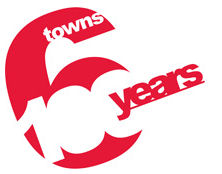31st March 1910 saw the federation of the
six towns to form the County Borough of Stoke-on-Trent
|
Stoke-on-Trent Local
History |
|
|
|
|
| Federation of the six towns 31st March 1910 saw the federation of the six towns to form the County Borough of Stoke-on-Trent |
![]()
![]()
previous: Parliamentary Elections Pt 1
contents: Index page for
Federation


Federation article by local
historian - Fred Hughes
People who
made the Potteries
Parliamentary Elections - Pt 2
|
Whichever way you vote on Thursday [Parliamentary elections in 2010] you shouldn’t run away with the idea you’ve started a revolution. We Brits don’t do revolution very well. Yes, we’ve occasionally drifted into civil war, but insurgency is so un-British – we’d much prefer political appeasement than rivers of blood. That’s not to say we haven’t had a few brief affairs with nationalist factions and courtships with communism. By European standards, though, our revolutions have been tame. So what did happen to those who saw the fires of rebellion fizzle out
Increasing the vote in 1970 to include people age 18 failed to impress the new electorate. Two years after the seminal international student rebellion in 1968, redbrick university undergraduates returned to serious study as election turnouts plummeted.
The 1979 election saw the National Front putting up its lone revolutionary in Stoke North. Charles Baugh got just 341 votes in a year when the far right party contested half the UK seats and polled sixth in the number of votes cast. But that was the Front’s best-ever year and it utterly failed to persuade the British public to revolt against its liberal values. In 1983 it was the turn of the silly people to stage their revolution. London-born pop musician Screaming Lord Sutch, brought his Monster Raving Loony Party to town causing much amusement at the launch of its candidate, ‘Legendary’ Lonny Cook (real name Clive), at Lonnie’s record shop in Stoke. Sutch, dressed in a leopard-skin cat suit and top hat, and Lonnie, attired in his customary country-music garb, went walkabout in Stoke exhorting townsfolk to adopt his policy of wearing whatever clothes you fancied even if you liked going naked. ‘If every smile we’ve had today was a vote I’d win by a landslide,’ he told the Sentinel as he went on to lose massively to Labour’s new MP, Mark Fisher. That year Labour slumped with many of its MPs defecting to a new group, the Social Democrat Party, campaigning in a revolutionary coalition with the Liberals. The SDP/Liberal Alliance won an impressive 25.4% of the national vote in 1983 compared with Labour's 27.6%. And yet the first-past-the-post system returned only 23 Alliance MPs to Labour's 209.
The election attracted nationwide interest with visits from the Tory whiz kid Jeffery Archer, and Glenys Kinnock the wife of Labour’s new leader; while the Alliance waded in with heavyweight Shirley Williams and overweight MP, 22-stone Cyril Smith. In the event ‘old’ Labour managed to scrape through effectively ending the Alliance revolution. Unlike buses, it took until 1997 for the next one to arrive. Like I say – the British don’t do revolution well. |
![]()
![]()
previous: Parliamentary Elections Pt 1
contents: Index page for
Federation